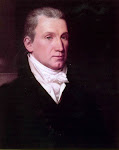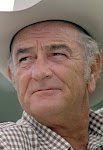
Being the President of the United States is not for sissies. It's a demanding and aging job, as each president knows better than anyone else could even imagine. Let the 43 men who have held this job tell about it.
George Washington:
If I should conceive myself in a manner constrained to accept [The Presidency] … This very act would be the greatest sacrifice of my personal feelings and wishes that ever I have been called upon to make.
I walk on untrodden ground. There is scarcely any part of my conduct which may not hereafter be drawn into precedent.
John Adams:
No man who ever held the office of President would congratulate a friend on obtaining it. [In a letter following the election of John Quincy Adams]
Thomas Jefferson:
No man will ever bring out of that office the reputation which carries him into it. The honeymoon would be as short in that case as in any other, and its moments of ecstasy would be ransomed by years of torment and hatred.
James Madison:
The great difficulty lies in this: you must first enable the government to control the governed and in the next place oblige it to control itself.
James Monroe:
Attacks on me will do me no harm, and silent contempt is the best answer to them.
John Quincy Adams:
If your actions inspire others to dream more, learn more, do more and become more, you are a leader.
Andrew Jackson:
I know what I am fit for. I can command a body of men in a rough way; but I am not fit to be President.
Martin Van Buren:
As to the Presidency, the two happiest days of my life were those of my entrance upon the office and my surrender of it.
William Henry Harrison:
John Tyler:
By abhorrent events I was unexpectedly elevated to the presidency. For the first time in our history the person elected to the Vice Presidency had had developed upon him the office of the Presidency.
James Knox Polk:
With me it is exceptionally true that the Presidency is no bed of roses.
Zachary Taylor:
The idea that I should become President seems to me too visionary to require a serious answer. It has never entered my head, not is it likely to enter the head of any other person.
Millard Fillmore:
It is a national disgrace that our Presidents, after having occupied the highest position in the country, should be cast adrift, and, perhaps be compelled to keep a corner grocery for substance.
Franklin Pierce:
You have summoned me in my weakness. You must sustain me by your strength.
James Buchanan:
If you [Abraham Lincoln] are as happy in entering the White House as I shall feel on returning to Wheatland, you are a happy man indeed.
Abraham Lincoln:
The power confided in me will be used to hold, occupy and possess the property and places belonging to the government, and to collect the duties and imposts.
Andrew Johnson:
This is a country for the white man and by God, as long as I am President; it shall remain a government of the white man.
Ulysses S. Grant:
I have acted in every instance from a conscientious desire to do what was right, constitutional, within the law, and for the very best interests of the whole people.
Rutherford B. Hayes:
No person connected with me by blood or marriage will be appointed to office.
James A. Garfield:
The President is the last person in the world to know what the people really want and think.
Chester A. Arthur:
I may be president of the
Grover Cleveland:
And still the question, “What shall be done with our ex-Presidents? Is not laid to rest; and I sometimes think [one] solution of it, “Take them out and shoot them,” is worthy of attention.
Benjamin Harrison:
I have often thought that the life of the President is like that of the policeman in the opera, not a happy one.
William McKinley:
I have never been in doubt since I was old enough to think intelligently that I would someday be made president.
Theodore Roosevelt:
To announce that there must be no criticism of the president, or that we are to stand by the president, right or wrong, is not only unpatriotic and servile, but is morally treasonable to the American public.
William Howard Taft:
Anyone who has taken the oath I have just taken must feel a heavy weight of responsibility.
Woodrow Wilson:
The President is at liberty, both in law and in conscience, to be as big a man as he can be.
Warren Harding:
I expect it is very possible that I would make as good a President as a great many men who are talked out of that position.
I am a man of limited talents from a small town. I don’t seem to grasp that I am President.
Calvin Coolidge:
I think the American public wants a solemn ass as a President. And I think I’ll go along with them.
Perhaps one of the most important accomplishments of my administration has been minding my own business.
Herbert Hoover:
In the end the President has become increasingly the depository of all national ills, especially if things go wrong.
Franklin D. Roosevelt:
The Presidency is not merely an administrative office…. It is pre-eminently a place of moral leadership. All our great Presidents were leaders of thought at times when certain historic ideas in the life of the nation had to be clarified.
Harry S. Truman:
When you get to be President, there are all those things, the honors, the twenty-one gun salutes, all those things. You have to remember it isn’t for you. It’s for the Presidency.
Most of the problems a President has to face have their roots in the past.
Dwight D. Eisenhower:
This desk of mine is one at which a man may die, but from which he cannot resign.
John F. Kennedy:
If this election is decided on the basis that 40 million Americans lose their chance to be president on the day they were baptized then it is the whole nation that will be the loser.
When we got into office, the thing that surprised me most was to find that things were just as bad as we’ve been saying they were.
Lyndon B. Johnson:
A president’s hardest task is not to do what is right, but to know what is right.
Richard M. Nixon:
The presidency has many problems, but boredom is the least of them.
When the President does it that means it is not illegal.
Gerald Ford:
The Constitution is the bedrock of all our freedoms; guard and cherish it; keep honor and order in your house, and the republic will endure.
Jimmy Carter:
I think the President is the only person who can change the direction or attitude of our nation.
Ronald Reagan:
How can a president not be an actor? – Ronald Reagan
George H.W. Bush:
To those who supported me, I will try to be worthy of your trust and to those who did not, I will try to earn it, and my hand is out to you, and I want to be your President too.
Bill Clinton:
Being president is like running a cemetery, you’ve got a lot of people under you and nobody’s listening.
George W. Bush:
Barack Obama:
















































